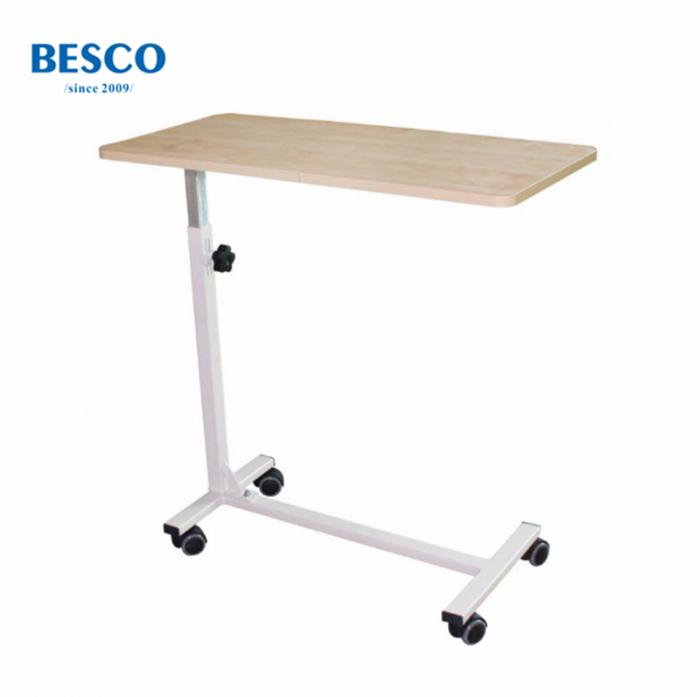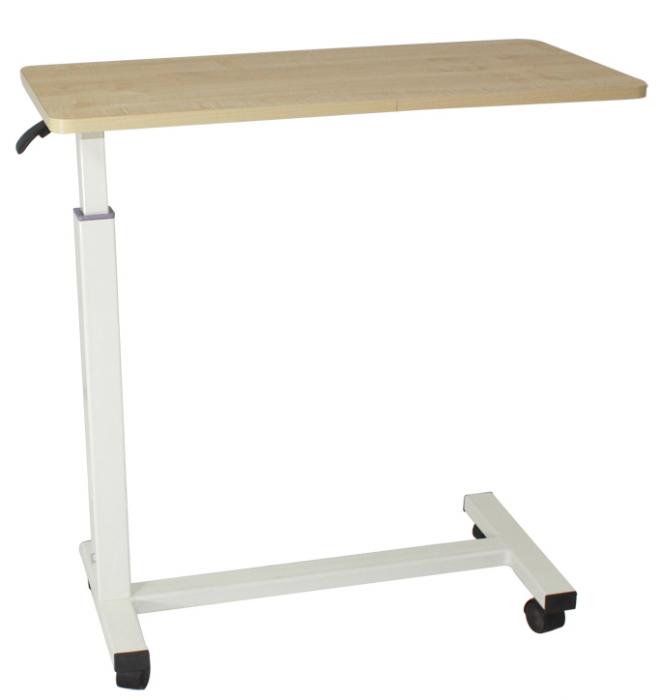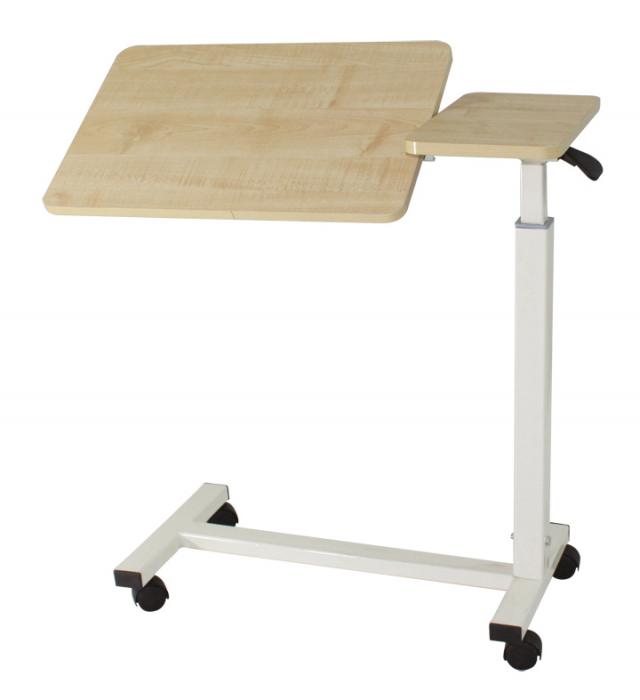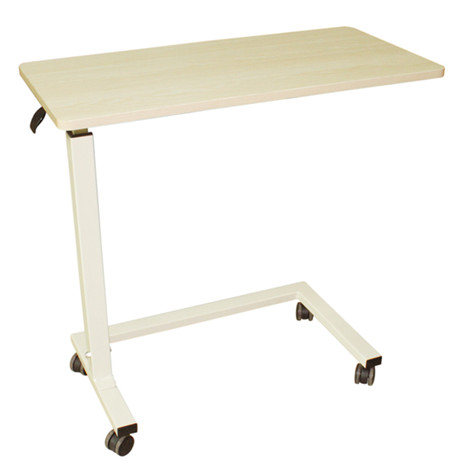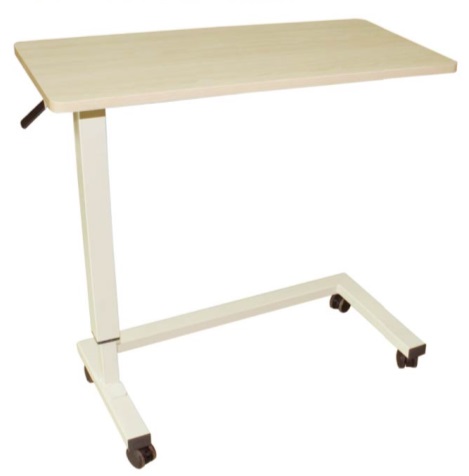| Name: | Overbed Table |
|---|---|
| Model No.: | BES-PM013 |
| Product Name: | Overbed Table |
| Price: | US24.5 |
| MOQ: | 100 units |
| Keywords: | Overbed Tables in Bedroom Safety & Aids,Patient & Resident Room Tables |
| Sample: | Available |
| Lead time: | 25 days |
| Payment Term: | T/T in advance |
| Country of Original: | China |
| Weight Capacity: | 11kgs |
| Stock: | Available |
| Port: | Jiangmen |
| Office: | Zhengzhou,China |
Products Description
Steady Beige Overbed Table with Wooden Top
L800*W390*H820~1200mm
Material:Wooden Panel,Epoxy coated steel frame
Function:Spring Lift
Top Dimensions (LxW): 80x39cm
Has Brakes on Both Wheels
Lifting: Manual
Adjustable Height from 82 to 120cm
Maximum Load: 11Kgs
Manufacturer: BESCO
Color Option:

An overbed table is a movable table with an adjustable-height surface that is designed to slide over a bed, couch, or recliner, providing a convenient surface for activities like eating, reading, writing, or using a laptop. Typically featuring wheels for easy mobility and an H-style base that fits under furniture, these versatile tables are used in both healthcare settings for patients and homes for comfort and convenience, holding personal items, food, and medical equipment within reach.
Key Features and Functionality
Adjustable Height
: The table's height can be raised or lowered to accommodate different users, bed types, and activities.
Mobility
: Most overbed tables are equipped with casters (wheels) for easy movement and positioning.
H-Style Base
: The base design allows it to slide under beds and couches, bringing the table surface closer to the user.
Tiltable Surface
: Many models include a surface that can be tilted to provide an optimal angle for reading or using electronic devices.
Durable Construction
: Overbed tables feature sturdy frames, often made of steel or aluminum, with durable, easy-to-clean laminate or wood-grain tabletops for stability and longevity.
Common Uses
Healthcare Settings
: Used for holding medical equipment, monitors, and supplies for bedridden patients.
Home Use
: Provides a convenient surface for eating, writing, using laptops, reading, and hobbies.
Accessibility
: Enhances functionality and comfort for individuals with limited mobility or who spend long periods in bed.
Where They Are Used
Overbed tables are found in hospitals, nursing homes, rehabilitation centers, and home environments where they serve as essential aids for maintaining independence and comfort.
To use an overbed table, position it close to the bed or chair, then operate the adjustment lever or handle to raise or lower the tabletop to the desired height. The table is then moved to lock the position for stability, and its wheels are often locked for security. The tabletop provides a surface for meals, personal items, and activities, with the ability to tilt for convenience or rest on specific models.
1. Positioning and Movement
Roll into Place: The overbed table features swivel casters (wheels) that allow it to be easily rolled to your desired location.
Engage Locks: Once in position, locate and engage the locking mechanism on the wheels to prevent the table from rolling away.
2. Adjusting the Height
Locate the Lever: Find the adjustment lever, handle, or knob, usually located near the table's column or underneath the tabletop.
Release and Adjust:
To Lower: Pull or lift the lever/handle upward and push the tabletop down to the desired height.
To Raise: Simply lift the tabletop up to the desired height.
Secure the Position: Release the lever/handle to lock the tabletop securely in place at its new height.
3. Using the Tabletop
Place Items: The tabletop is designed to hold items like meal trays, books, remote controls, phones, and medications, keeping them within easy reach.
Utilize Special Features: Some models offer additional features:
Raised Edge: A rim along the edge can prevent items from rolling off.
Tilt Feature: A tiltable surface is beneficial for reading or using a laptop, and can be easily returned to a flat position for meals.
Cup Holders: Some tables have integrated, removable cup holders for secure beverage placement.
Important Considerations
Avoid Overloading:
Do not overload the tabletop or storage areas beyond the prescribed limits to maintain stability and prevent damage.
No Support for Movement:
An overbed table should not be used as a support for getting out of bed or as an aid for walking.
